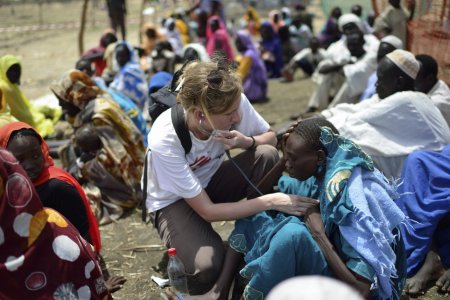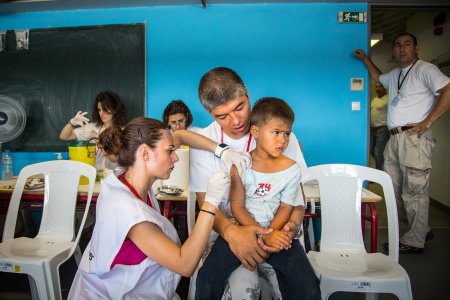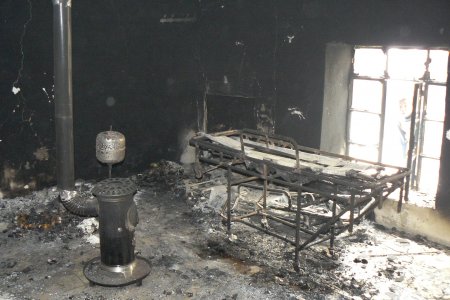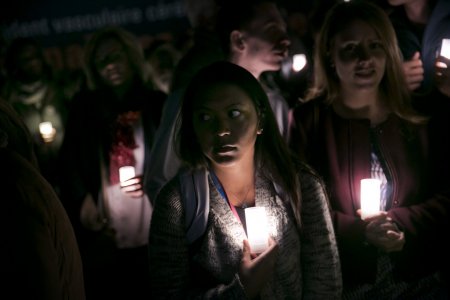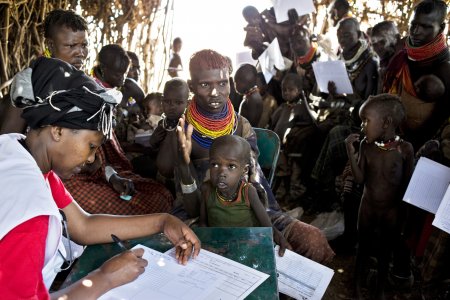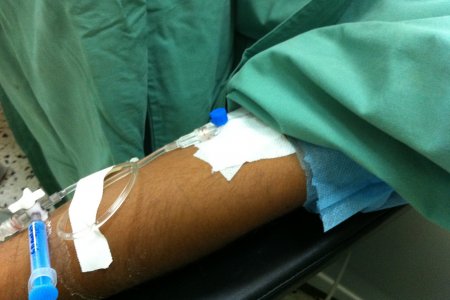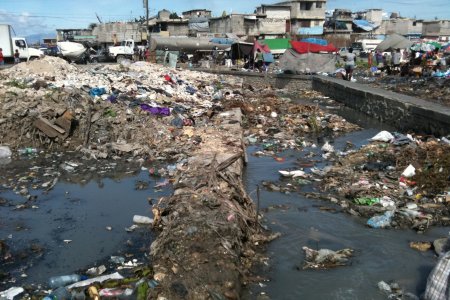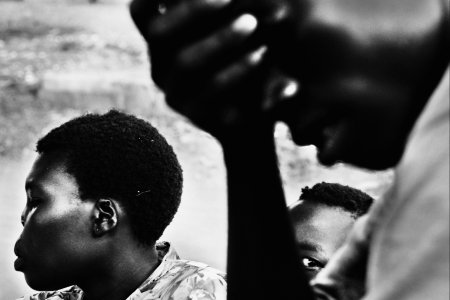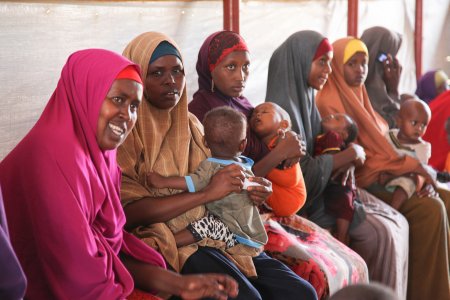OFF THE CUFF is a participative blog run by the Crash. Its purpose is to expose the diversity of experiences and opinions that exist among humanitarian aid practitioners. Online comments as well as direct contributions are more than welcome.
Views expressed on this blog are those of their authors and do not necessarily reflect the official positions of Médecins Sans Frontières
MSF and economy-generated environmental disasters
John Pringle suggests that MSF, when tackling economy-generated environmental disasters, should not hesitate to question the ‘forces that deny our patients the societal determinants of health'.
PHAP Hosts Discussion on the Challenges and Compromises of Humanitarian Access
On 19th of September, PHAP hosted a discussion on the compromises and negotiations the humanitarian aid community must contend with during crisis situations with Michael Neuman and Antonio Donini.
Jean-Hervé Bradol: "In Syria, delivering aid is expensive, low-impact and highly frustrating".
Jean-Hervé Bradol has just returned from an exploratory mission in northern Syria. He is interviewed by La Croix.
Massacre of 17 Action Contre la Faim employees in Sri Lanka: demand justice or reveal the truth?
On 4th August 2006, 17 Sri Lankans working for Action Contre la Faim were executed inside their own compound, the same day Sri Lankan government forces reclaimed control of the town of Muttur.
Humanitarian exoticism
This article is about humanitarian exoticism and culturalist convictions: those to which members of NGOs currently adhere.
Torturing in peace with medical help
Two operational situations have recently caused Médecins Sans Frontières to confront the question of torture and the instrumentalisation of medicine by those who practise it.
Negotiating Humanitarian Access: How Far to Compromise to Deliver Aid
On January 26, the Brookings-LSE Project on Internal Displacement and Doctors Without Borders/Médecins Sans Frontières (MSF) hosted a discussion on the compromises and negotiations the humanitarian aid community must contend with during crisis situations.
The origin of cholera in Haiti: the culprit has been found!
Two scientific studies published last year confirmed the origin of the cholera epidemic that struck Haiti in October 2010. It was indeed caused by massive amounts of the bacterium Vibrio cholerae in the Artibonite river delta, originating from the sewage in the Minustah soldiers' camp.
Follow-up to "Wartime rapes: men, too"
In "Wartime rapes: men, too", I discussed an article, "The rape of men", by Will Storr published in The Observer on 17 July 2011.
Horn of Africa: the weaknesses of a controversial operation
In a report titled "A Dangerous Delay", Oxfam and Save the Children rebuke everyone - governments, humanitarian organisations, the United Nations - who participated in the humanitarian response to the food crisis that struck the Horn of Africa in recent months.
Wartime rapes: men, too
Since the beginning of the 2000s, a number of English-language researchers have regularly asked the following question: why do international aid organisations pay so little attention to rapes of men and boys committed during armed conflicts?
Humanitarian Negotiations revealed: the MSF experience
From international NGOs to UN agencies, from donors to observers of humanitarianism, opinion is unanimous: in a context of the alleged ‘clash of civilisations', our ‘humanitarian space' is shrinking.

